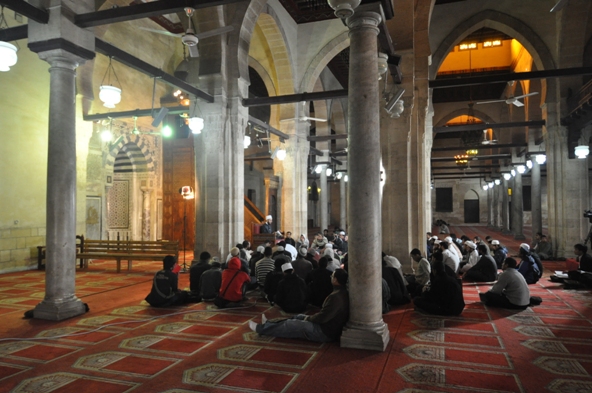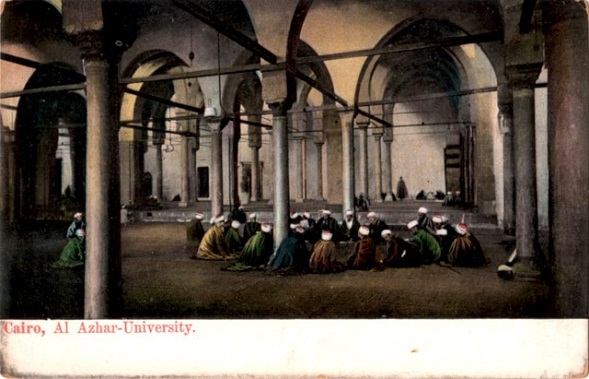REVIEW: Commander of the Faithful by John Kiser
Friday, March 30th, 2018[Mark Safranski / “zen‘]
Commander of the Faithful: The Life and Times of Emir Abd el-Kader by John Kiser
A while back, I received a copy of Commander of the Faithful from friend of ZP, Major Jim Gant who had been impressed with the book and urged me to read it. My antilibrary pile of books is substantial and it took a while to work my way towards it. I knew a little about Algerian colonial history from reading about the French Third Republic, the Foreign Legion and counterinsurgency literature but the name of Abd el-Kader was obscure to me. The author, John W. Kiser, had also written a book on the martyred Monks of Tibhirine, a topic that had previously caught the eye of Charles Cameron and made a significant impression. Therefore, I settled in to read a biography of a long forgotten desert Arab chieftain.
What a marvelous book!
Kiser’s fast-moving tale is of a man who attempted to forge from unwieldy tribes and two unwilling empires, a new nation grounded in an enlightened Islam that transcended tribal customs ad corrupt legacies of Ottoman misrule while resisting encroachments of French imperial power. A Sufi marabout who was the son of a marabout, el Kader was the scholar who picked up the sword and whose call to jihad eschewed cruelty and held that piety and modernity were compatible aspirations for the feuding tribes of the Mahgreb. There are a number of themes or conflicts in Commander of the Faithful that will interest ZP readers;
el-Kader’s political effort to build a durable, modernizing, Islamic state and Mahgreb nation from feuding desert tribes and clans
Abd el-Kader struggled to unify disparate Arab tribes and subtribes through piety, generosity and coercion while integrating Turco-Arabs and Algerian Jews who had a place under the old Ottoman regime into his new order. Jews like the diplomat Judas Ben Duran and Christian French former military officers and priests became el-Kader’s trusted advisers and intermediaries alongside Arab chieftains and Sufi marabouts.
el-Kader the insurgent strategist and battlefield tactician
As a military leader, Abd el-Kader demonstrated both a natural talent for cavalry tactics as well as the organizational skill to build a small, but well-disciplined regular infantry with modern rifles on the European model. It is noteworthy, that while Abd el-Kader suffered the occasional reverse (the worst at the hands of a wily Arab warlord loyal to the French) the French generals fighting him all came to grudgingly respect his bravery, honor and skill. Never defeated, Abd el-Kader made peace with the French and surrendered voluntarily; all of his former enemies, Generals Lamoriciere, Damaus, Bugeaud and Changarnier interceded on al-Kader’s behalf to prod the French government to keep its promises to the Amir, who had become a celebrity POW in a series of French chateaus.
el-Kader the Islamic modernizer and moral figure
The 19th century was a time of intellectual ferment in the Islamic world from Morocco to British India with the prime question being the repeated failures of Islamic authorities in the face of European imperialism of the modern West. El-Kader found different answers than did the Deobandis of India, the Wahhabis of Arabia, the later Mahdists of the Sudan, the followers of al-Afghani or the Young Turks who began turning toward secularism. Educated in the Sufi tradition, el-Kader’s vision of Islam, while devout and at times strict, encompassed a benevolent tolerance and respect for “the People of the Book” and general humanitarianism far in advance of the times that is absent in modern jihadism.
It was Abd el-Kader, in retirement in Damascus, who rallied his men to protect thousands of Christians from being massacred in a bloody pogrom (the 1860 Riots) organized by the Ottoman governor, Ahmed Pasha, using as his instrument two local Druze warlords who were angry about their conflict with the Maronite Christians of Mount Lebanon and Sunni Arabs and Kurds enraged about the Ottoman reforms that had ended the dhimmi status of the Maronite Christians. It was the Emir who faced down and chastised a howling mob as bad Muslims and evildoers and by his actions thousands of lives were spared. Already honored for his chivalrous treatment of prisoners and his banning of customary decapitation as barbarous, the 1860 Riots cemented Abd El-Kader’s reputation for humanitarianism and made him an international figure known from the cornfields of Iowa to the canals of St. Petersburg.
Kiser, who it must be said keeps the story moving throughout, is at pains to emphasize the exemplary moral character of Abd el-Kader. As Emir, he “walked the walk” and understood the connection between his personal asceticism, probity and generosity to his enemies and the poor and his political authority as Emir. When some Arab tribes betrayed Abd El-Kader in a battle against the French, consequently they were deeply shamed and ended up begging the Emir to be allowed to return to his service. On the occasions when harsh punishments had to be dealt out, Abd el-Kader meted them not as examples of his cruelty to be feared but as examples of justice to deter unacceptable crimes that he would swiftly punish. This is operating at what the late strategist John Boyd called “the moral level of war”, allowing Abd el-Kader to attract the uncommitted, win over observers, rally his people and demoralize his opponents. Even in defeat, realizing the hopelessness of his position against the might of an industrializing great imperial power that was France. el-Kader retained the initiative, ending the war while he was still undefeated and on honorable terms.
In Commander of the Faithful, Kiser paints el-Kader in a romantic light, one that fits the mid 19th century when concepts of honor and chivalry still retained their currency on the battlefield and society, among the Europeans as much as the Emir’s doughty desert tribesmen (if there is any group that comes off poorly, it is the Turks, the dying Ottoman regime’s pashas and beys providing a corrupt and decadent contrast to el-Kader’s nascent Islamic state). The nobility of Abd el-Kader shines from Kiser’s text, both humble and heroic in a manner that rarely sees a 21st century analogue. It is both refreshing and at times, moving to read of men who could strive for the highest ethical standards while engaged in the hardest and most dangerous enterprise.
Strongly recommended.









